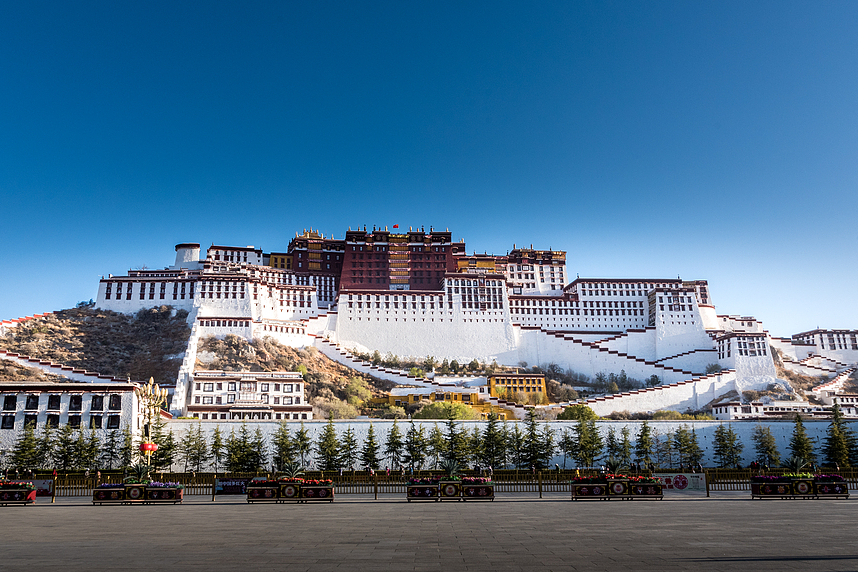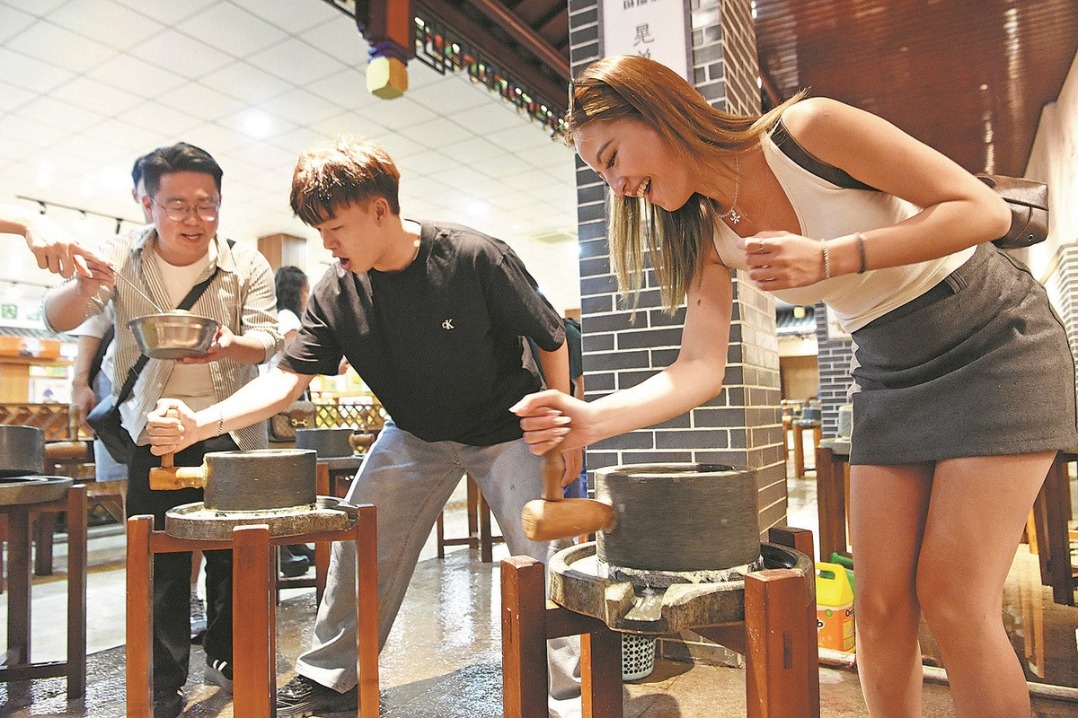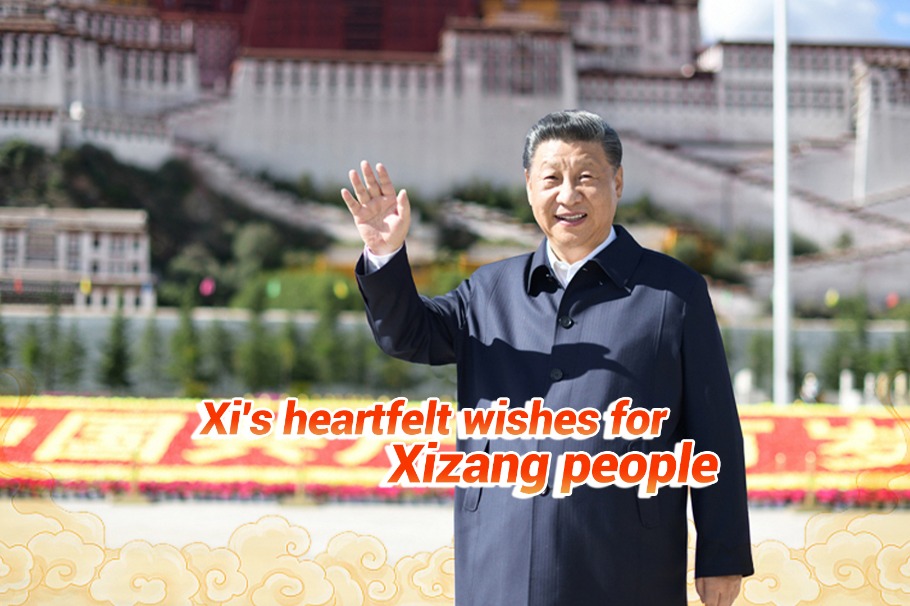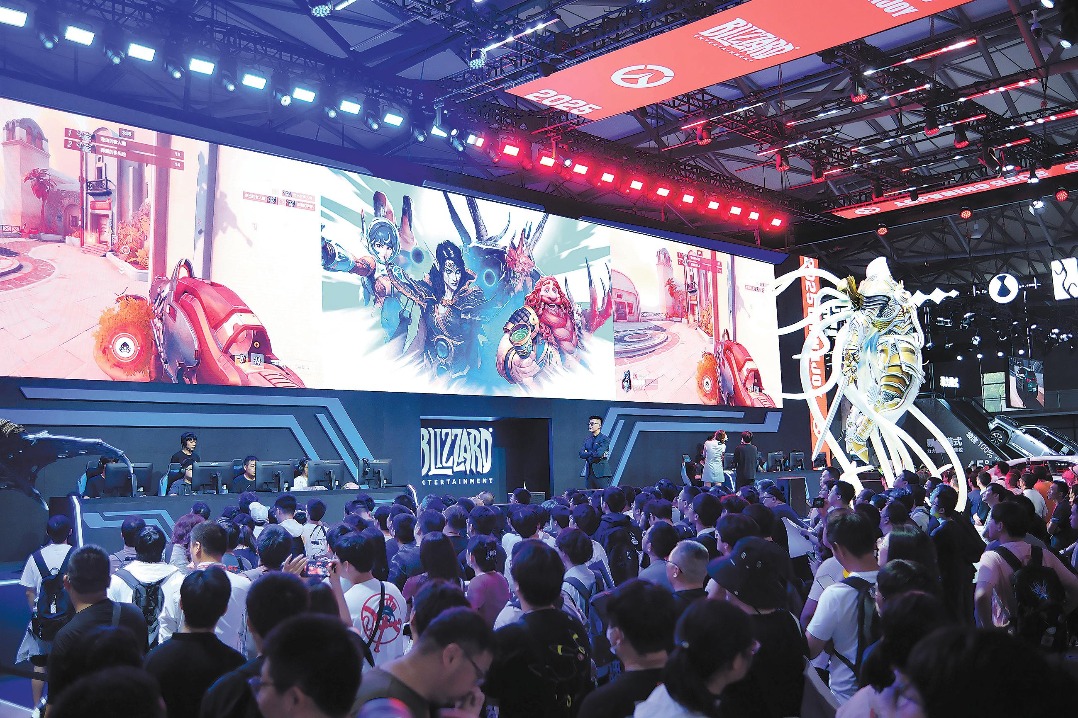Educational exchange has long enriched US-China relations
By DONG LESHUO in Washington | China Daily Global | Updated: 2019-11-22 01:19
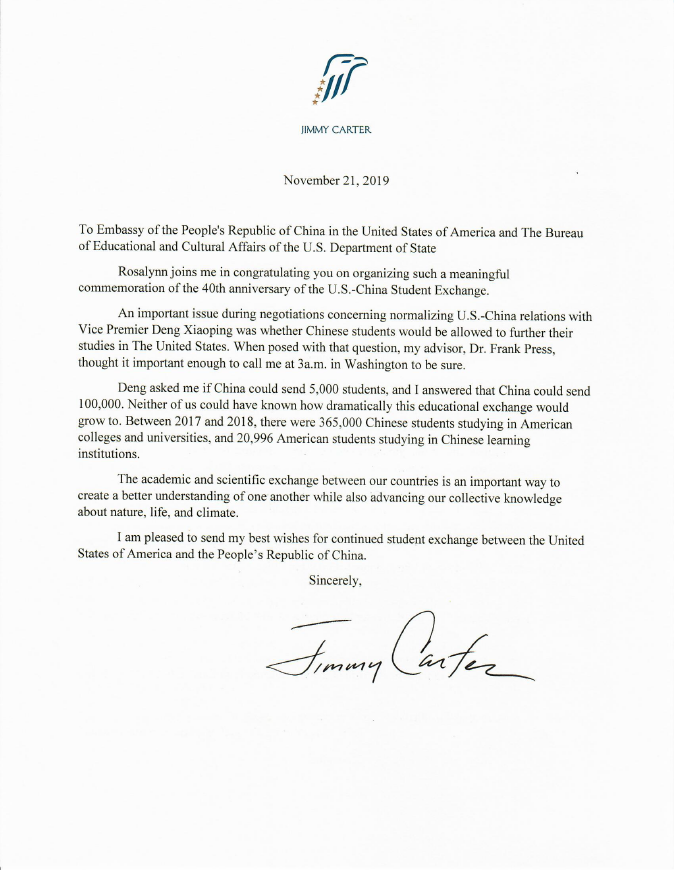
In 1978, Chinese leader Deng Xiaoping made a strategic decision to send 3,000 students and scholars from China overseas each year to further their educations.
US President Jimmy Carter later famously said on July 10 that year: "Tell him (Deng) to send 100,000."
The initial group of 52 scholars left China for the US on Dec 26, 1978, for a two-year stay, according to John C. Thomson, who worked in the American embassy in Beijing to help restore US-China educational exchanges after a 30-year hiatus.
The next year, eight American students were sent to China.
"By the time I left Beijing in 1981, I was delighted to see over 8,000 Chinese scholars and students studying in the US, hundreds of US scholars and students in China, and over 80 sister-school cooperation agreements," Thomson told China Daily. "This was the beginning of rapid growth in an important component of the US-PRC relationship: the exchange of scholars, students and scientific knowledge. Both the US and China have benefitted from the enormous increase in personal interaction and friendships, and awareness of each other's society, economy, government, environment and culture."
In a letter sent to the Chinese embassy ahead of the Celebration of the 40th Anniversary of US-China Student Exchanges on Nov 21, Jimmy Carter wrote:
"The academic and scientific exchange between our countries is an important way to create a better understanding of one another while also advancing our collective knowledge about nature, life and climate."
In the 2018-19 school year, the number of higher education students from China in the US was 369,548, comprising 33.7 percent of the 1.09 million international students in the US, according to the 2019 Open Doors Annual Data Release on Monday in Washington.
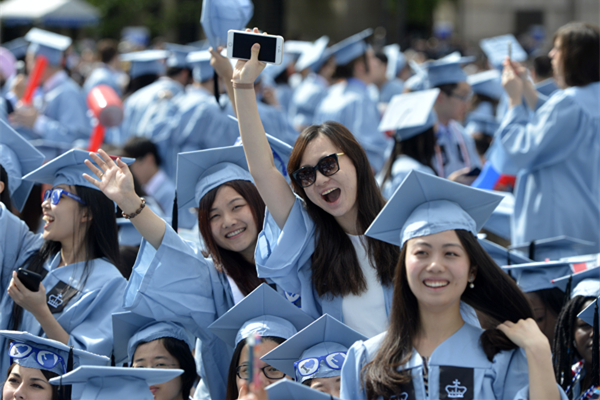
"The essence of the 40-year story is amity between the people, which lays the foundation for and shapes the future of our relations," Chinese Ambassador to the US Cui Tiankai said on the Open Day of the Chinese embassy in the US on May 4.
"History proves that we made the right choice four decades ago. Both of our countries benefit from cooperation but lose in confrontation," Li Kexin, minister at the Chinese embassy in Washington, said on Oct 26, at the 2019 Jiangsu Cup Chinese Speech Contest reception at the embassy. "People-to-people exchange is proven to be the fundamental driving force for the relationship."
With the widening of China's historic reforms and opening-up, the education sector has gone through a major transformation, which has attracted more American students to China.
The number of Americans studying in China has grown from zero to a veritable industry that involves nearly 10,000 American participants each year, making China one of the top 10 overseas-study destinations for US students, and one of the top 10 host countries for all international students.
Over the past 40 years, nearly 330,000 American students have studied in China.
John V. Grobowski, who studied Chinese at the University of Chicago, was selected as one of the first few American students to study in China, arriving in Beijing in February 1979.
Grobowski, who studied archeology at Peking University, recalled that life in China was simple then. Occasionally, the students would eat a little bit of chicken or pork, but their main food staple in the winter was cabbage.
He said the archeology professors were terrific. "Absolutely outstanding. Every single one of them. I'm very grateful for what they taught me," said Grobowski.
Mary Babameto, a senior at the College of William & Mary in Virginia, who studied at Tsinghua University in 2018, saw an advancing China.
"I was so impressed by how modern and developed everything was, how efficient the city is, Beijing and Shanghai … it really opens up my eyes about the possibility of going back there in the future, maybe to live or just to vacation and travel," she said.
She also found something similar compared with those who went to China about 40 years ago.
"What I really learned is that people are so similar, wherever you go, there are friendly people all over the world, especially in China, everyone is so warm, welcoming and very willing to help," Babameto said.
Bo Gao is a PhD student of musical arts at The Catholic University of America, who came from China and has been studying in the US for 10 years.
"Now I'm not a musician or a pianist anymore, I feel like I'm in the process of becoming an artist, who knows the music, the background and who knows how to use the music as a contribution to the society, to help people. That's what I have learned in the past 10 years," said Gao.
Many Chinese students in the US choose to study science and technology. A very accomplished such student is Yan Ning, a structural biologist, who went to study at Princeton University in 2000 and received her PhD degree in 2004.
Yan returned to China and became a professor at Tsinghua University in Beijing in 2007, then 10 years later, she returned to Princeton University as the Shirley M. Tilghman Professor of Molecular Biology.
"Coming to study at Princeton is one of the most important decisions I have made. During those seven years. I grew from a young person to a person who is devoted to scientific research," said Yan.
Education relations have long been viewed as deepening and stabilizing China-US relations in the past 40 years.
Cheng Li, director of the John L. Thornton China Center at the Brookings Institution, went to the US for graduate studies at the University of California, Berkeley in 1985.
"When I arrived in the US to study in 1985, America was open, confident, less suspicious of foreigners; 9/11 hadn't happened. There was tremendous respect for different cultures … there were a lot of things that I am grateful forever, for this kind of generosity and kindness," said Li.
Since last year, US intelligence agencies began suggesting American universities develop protocols for monitoring students and scholars from China.
"I'm suspicious of the motives of the people who are suspicious of the exchanges," said James Feinerman, associate dean for graduate and international programs at Georgetown University Law Center.
Feinerman said that it is important to "make sure American politicians, American businesspeople, civil society, have more first-hand experience of China. Because it's very easy to demonize people in both directions that you don't know very much about, or just heard rumors about. In this age, it should be easily possible to send somebody on a two- to three-week tour and dispel a lot of that misunderstanding, just by seeing it yourself."
Most of the American and Chinese universities and colleges are highly supportive of continuing and enhancing educational exchange between China and the US regardless of the challenges.
"The opportunity to study in China, or to have Chinese students come to the US, is one of the greatest openings for understanding between our countries," Thomas LeBlanc, president of George Washington University, said at the language contest.
"We hold a strong belief that no matter how the world situation may change, it is the best way to cross the barriers and make progress together on the basis of mutual understanding through dialogues and exchanges," Lijie Pu, associate vice-president of Nanjing University, also said at the Oct 26 event.
"I firmly believe that these unofficial ties are more important than ever," said Brad Farnsworth, vice-president of the American Council on Education. "It's just critically important that we keep that foundation. No matter what happens."
"Over these decades, there has been a marvelous growth of people-to-people contacts and ties between our two countries, as we are now looking forward to the coming decades, (that) the friendship between our two peoples will continue to be the very foundation of the relations between our two great countries. Together we will build even stronger ties between our people," said Cui.





